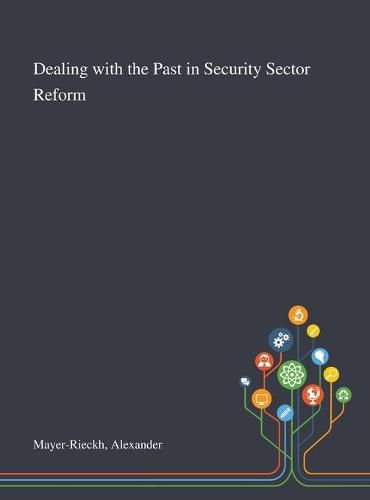Readings Newsletter
Become a Readings Member to make your shopping experience even easier.
Sign in or sign up for free!
You’re not far away from qualifying for FREE standard shipping within Australia
You’ve qualified for FREE standard shipping within Australia
The cart is loading…






This title is printed to order. This book may have been self-published. If so, we cannot guarantee the quality of the content. In the main most books will have gone through the editing process however some may not. We therefore suggest that you be aware of this before ordering this book. If in doubt check either the author or publisher’s details as we are unable to accept any returns unless they are faulty. Please contact us if you have any questions.
Security sector reform (SSR) and transitional justice processes often occur alongside each other in societies emerging from conflict or authoritarian rule, involve many of the same actors, are supported by some of the same partner countries and impact on each other. Yet the relationship between SSR and transitional justice, or a dealing with the pasta (DwP) as it is also called, remains underexplored and is often marked by ignorance and resistance. While SSR and transitional justice processes can get into each othera s way, this paper argues that SSR and DwP are intrinsically linked and can complement each other. SSR can make for better transitional justice and vice versa. Transitional justice needs SSR to prevent a recurrence of abuses, an essential element of justice. SSR can learn from transitional justice not only that it is better to deal with rather than ignore an abusive past but also how to address an abusive legacy in the security sector. The validity of these assumptions is tested in two case studies: the police reform process in Bosnia and Herzegovina after 1995 and the SSR process in Nepal after 2006. This work was published by Saint Philip Street Press pursuant to a Creative Commons license permitting commercial use. All rights not granted by the work’s license are retained by the author or authors.
$9.00 standard shipping within Australia
FREE standard shipping within Australia for orders over $100.00
Express & International shipping calculated at checkout
This title is printed to order. This book may have been self-published. If so, we cannot guarantee the quality of the content. In the main most books will have gone through the editing process however some may not. We therefore suggest that you be aware of this before ordering this book. If in doubt check either the author or publisher’s details as we are unable to accept any returns unless they are faulty. Please contact us if you have any questions.
Security sector reform (SSR) and transitional justice processes often occur alongside each other in societies emerging from conflict or authoritarian rule, involve many of the same actors, are supported by some of the same partner countries and impact on each other. Yet the relationship between SSR and transitional justice, or a dealing with the pasta (DwP) as it is also called, remains underexplored and is often marked by ignorance and resistance. While SSR and transitional justice processes can get into each othera s way, this paper argues that SSR and DwP are intrinsically linked and can complement each other. SSR can make for better transitional justice and vice versa. Transitional justice needs SSR to prevent a recurrence of abuses, an essential element of justice. SSR can learn from transitional justice not only that it is better to deal with rather than ignore an abusive past but also how to address an abusive legacy in the security sector. The validity of these assumptions is tested in two case studies: the police reform process in Bosnia and Herzegovina after 1995 and the SSR process in Nepal after 2006. This work was published by Saint Philip Street Press pursuant to a Creative Commons license permitting commercial use. All rights not granted by the work’s license are retained by the author or authors.